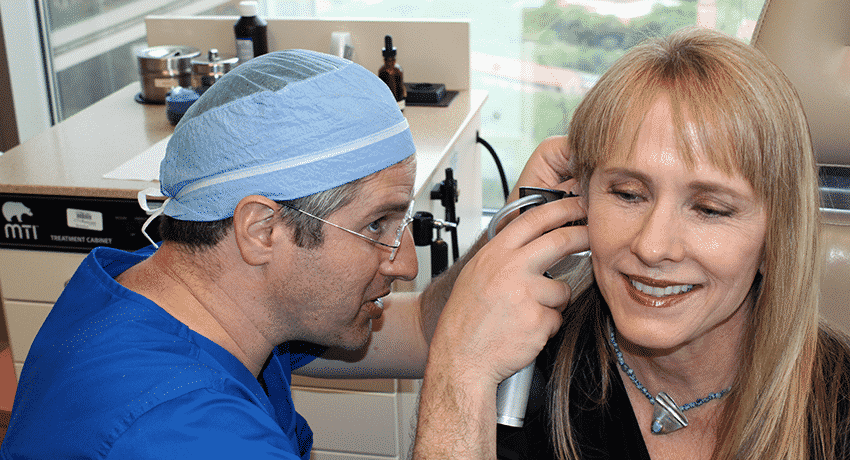Oral, Head and Neck Cancer Awareness Week, observed April 3-9 this year, is a time to raise awareness and promote timely screenings.

“The early detection of oral, head, and neck cancers is crucial,” said Ron J. Karni, MD, ENT specialist with UT Physicians and associate professor in the Department of Otorhinolaryngology – Head and Neck Surgery at McGovern Medical School at UTHealth Houston. “The signs and symptoms often go unnoticed, but there are a few visible signs associated with these cancers such as a lump in your neck, a sore in your mouth that doesn’t heal or that increases in size, persistent pain in your mouth, lumps or white or red patches inside your mouth, difficulty chewing or swallowing or moving your tongue, soreness in your throat or feeling that something is caught in your throat, and changes in your voice.”
Oral, head, and neck cancers claim approximately 13,000 lives per year. However, there is hope. If diagnosed early, these cancers can be more easily treated without significant complications and the chances of survival greatly increase.
Who should get tested?
Every adult should be tested. Tobacco and alcohol users traditionally have been considered the populations at greatest risk for these cancers. However, throat cancer cases are on the rise in younger adults who do not smoke and recent research indicates this development is due partly to the increase of the human papillomavirus virus (HPV). HPV-related oral, head, and neck cancers are more difficult to detect because these cancers usually occur on the back of the tongue or on the tonsils, providing even more reason to get screened regularly.
What are the potential warning signs of oral, head, and neck cancers?
The signs and symptoms of oral, head, and neck cancers often go unnoticed, but there are a few visible signs associated with these cancers that require immediate attention, including:
- A lump in your neck,
- A sore in your mouth that doesn’t heal or that increases in size,
- Persistent pain in your mouth,
- Lumps or white or red patches inside your mouth,
- Difficulty chewing or swallowing or moving your tongue,
- Soreness in your throat or feeling that something is caught in your throat,
- Changes in your voice (hoarseness)
If you have any of the above warning signs, please seek medical attention. If would like to schedule an appointment for a screening, go here.


